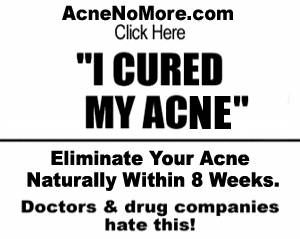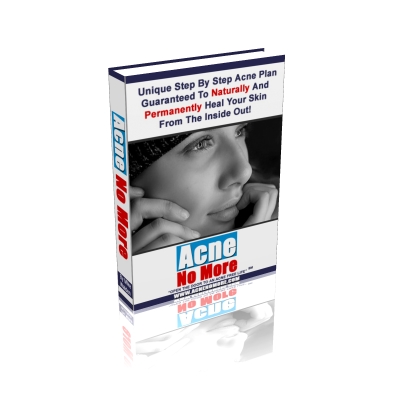Acne is a common skin condition that has been surrounded by various misconceptions. However, with advancements in technology and scientific understanding, we can now debunk many of these myths. Let's take a closer look at some of the commonly known acne myths and separate fact from fiction.
Myth: Acne is caused by poor hygiene.
Contrary to popular belief, poor hygiene is not the primary cause of acne. Acne is mainly the result of skin infections caused by a combination of sebum and dead cells beneath the skin's surface. While maintaining clean skin through gentle cleansing with soap and water once or twice a day can promote overall skin health, it does not effectively eliminate the underlying infections. It's important to avoid excessive scrubbing, as it can further aggravate acne.
Visit: Got Acne? Limit Your Dairy Foods Intake
Myth: Grease and Chocolate will cause acne.
For years, people have associated the consumption of chocolate and greasy foods with the development of acne. However, scientific studies have failed to establish a direct relationship between eating chocolate or indulging in greasy foods and acne breakouts. It's worth noting that certain foods, such as milk and those high in iodine (found in seafood), may exacerbate acne for some individuals. While enjoying chocolate and greasy foods in moderation is unlikely to cause acne, maintaining a balanced diet is essential for overall health.
Myth: Sex is directly linked to acne.
The correlation between sexual activity and acne has been the subject of many misconceptions. From claims linking acne to masturbation to celibacy, these notions are unfounded. While hormones do play a role in both sexual activity and sebum production (which can contribute to acne), the exact relationship remains unclear. Additionally, emotions and stress levels can also impact hormone levels, further influencing acne development.
Myth: You will grow out of acne.
Acne is not solely a temporary condition that one inevitably outgrows. It can persist for weeks, months, or even years. Fortunately, numerous over-the-counter treatments are available to alleviate the discomfort and embarrassment associated with acne. In more severe cases, dermatologists can provide specialized care and guidance.
Myth: Acne only affects teenagers.
Although acne is commonly associated with adolescence, it can affect individuals of all ages. While approximately 85% of teenagers experience acne, adults in their 30s or 40s can also suffer from this condition. Acne is not confined to a specific age group and can arise due to various factors such as hormonal changes, genetics, and lifestyle.
Myth: Acne is only a superficial condition.
Beyond its physical manifestations, acne can significantly impact an individual's mental and emotional well-being. The disfigurement caused by acne often leads to psychological stress, and there is a strong association between acne and conditions such as depression, social withdrawal, and low self-esteem. Recognizing the psychological effects of acne is crucial in providing comprehensive support and treatment.
Myth: Popping/Squeezing pimples will get rid of them faster.
Contrary to popular belief, attempting to pop or squeeze pimples can actually worsen the condition. It can spread the bacteria responsible for causing acne and increase the likelihood of permanent scarring. It is advisable to refrain from picking at pimples and instead follow proper skincare practices and treatment methods recommended by healthcare professionals.
Myth: Sun exposure will help clear up acne.
While exposure to the sun may initially dry out excess oils on the skin, the long-term effects are counterproductive. The skin quickly adapts to sun exposure, negating any potential benefits in the treatment of acne. Moreover, prolonged sun exposure without adequate protection increases the risk of skin damage and cancer. It's crucial to prioritize sun protection and consult dermatologists for suitable acne treatment options.
Myth: Wearing makeup causes acne.
Acne prevention is best achieved through maintaining healthy skin. While certain makeup products can clog pores and contribute to acne formation, not all cosmetics are problematic. Many brands now offer noncomedogenic or nonacnegenic makeup specifically designed not to cause acne. These makeup options are safe to use and some even contain ingredients that help treat acne. It is essential to choose makeup products wisely and prioritize skincare routines that promote clean and clear skin.
Myth: Using more acne medication will treat the condition quicker.
Applying excessive amounts of acne ointments can irritate the skin, worsening the condition instead of improving it. It's crucial to follow the recommended guidelines and directions for any acne medications or treatments. Additionally, oral medications used for acne treatment may carry potential risks to overall health and should be used under medical supervision. It's important to seek professional advice and adhere to prescribed treatments for optimal results.
Conclusion
By debunking these prevalent acne myths, we can gain a clearer understanding of the condition and make informed decisions regarding its treatment. Acne is a complex skin issue influenced by various factors, including genetics, hormones, and lifestyle choices. Seeking professional guidance and adopting a comprehensive approach to skincare can help individuals effectively manage and address acne-related concerns. Remember, accurate knowledge is the key to combating acne and achieving healthier, clearer skin.
Note: Have you heard about Mike Walden's new holistic acne system called "Acne No More"? It offers valuable insights into naturally and permanently eliminating acne without relying on drugs, creams, or gimmicks. If you're interested in learning more, you can visit the website [AcneNoMore.com].




















0 Comments